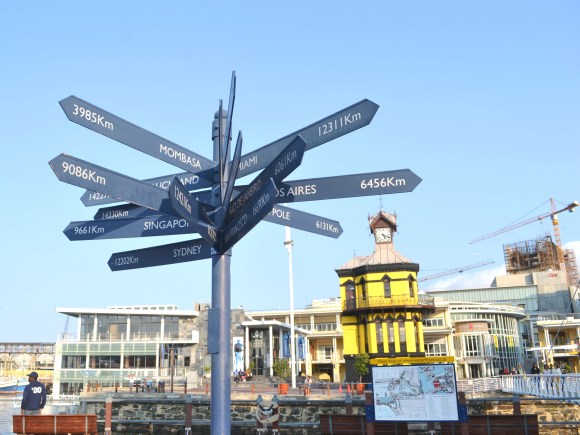
Cape Town has won the bid to host the fourteenth annual Wikimania 2018 conference, the annual gathering of volunteers from around the world to celebrate Wikipedia and the Wikimedia projects, from 18–22 of July.
Attendees will be made up of members of the global Wikimedia movement, including those who volunteer their time to edit and improve Wikipedia articles, create bots, or organise events and projects to draw more content onto Wikipedia and the Wikimedia projects. Other open knowledge advocates will also attend, along with local academics, teachers, heritage specialists, and interested stakeholders.
Across more than 70 sessions, attendees will work to bring the conference theme: Bridging knowledge gaps; the Ubuntu way forward to life, by ensuring that some of the fundamental principles of the Wikimedia movement are contextualised within the rapidly evolving internet narrative.
Confirmed speakers include internet geographist Dr. Martin Dittus, who will be speaking on economic development, labour, power, participation, and representation. Joy Buolamwini, a noted female Artificial Intelligence expert fighting to remove bias in machine learning, and Prof. Sean Jacobs whose focus areas includes trends in digital culture are also invited thought leaders at the conference.
“Our vision is a world in which every single person can freely share in the sum of all knowledge. We believe that knowledge belongs to everyone, and that people from diverse backgrounds should be empowered to participate in the collaborative creation of knowledge,” said Katherine Maher, the Executive Director of the Wikimedia Foundation.
Wikimedia is also looking to expand its non-Western topics, where there is still not enough locally relevant content about Africa, particularly that which is gathered from African perspectives or shared in African languages. The same could be said for indigenous knowledge and local knowledge from many places outside the Global North, much of which is still missing. South Africa has active Afrikaans and isiXhosa Wikipedia editions, but most of the other indigenous languages from the continent are either missing or do not have regular contributions on Wikipedia.
Challenges with software localisation, the structure of data, and even the forms of knowledge that Wikimedia has defined as “verifiable” (text-based, rather than oral, for example) are some of the issues the movement is grappling with as it moves actively towards incorporating more diverse kinds of knowledge within Wikipedia and the Wikimedia projects.
This year’s Wikimania conference will take place at the Southern Sun, Cape Sun Hotel. Wikimania 2018 is co-organized by Wikimedia South Africa, the local Wikimedia affiliate organization of South Africa, and the Wikimedia Foundation, the non-profit that supports the Wikipedia and other free knowledge projects.
Wikipedia is a collaborative collection of knowledge that is open for anyone to edit. Today Wikipedia is available in more than 45 million articles across nearly 300 languages, and is read more than 15 billion times every month. Volunteer editors from around the world, or Wikipedians, come together to write and update Wikipedia articles in real time, collaborating to ensure that information is neutral and based in reliable sources. Each month, more than 200,000 people edit Wikipedia.
The Wikimedia Foundation is the nonprofit organization that supports Wikipedia, the Wikimedia free knowledge projects, and its mission of free knowledge for every single person.
Kui Kinyanjui, Vice President, Communications
Wikimedia Foundation
You can follow the conference on social media with the hashtag #Wikimania2018, as well as on Facebook, Twitter, and Instagram. For more information about the conference and to register, please visit wikimania2018.wikimedia.org.

Can you help us translate this article?
In order for this article to reach as many people as possible we would like your help. Can you translate this article to get the message out?
Start translation